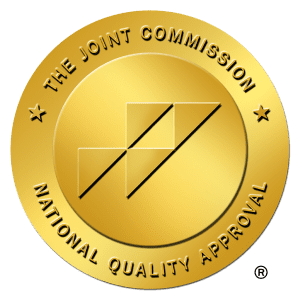At Grata we provide the most cutting edge detox services, in private rooms, to ensure all clients are separated from all addictive substances using the safest and most comfortable methods.
Developmental Trauma &
Co-Occuring Substance Dependence
Developmental Trauma is early life emotional and/or physical abuse, neglect and/or household dysfunction that results in physical and mental health conditions producing a shortened lifespan and inability to affect positive life outcomes. Often that internal pain creates the existential crisis of addiction, alcoholism, and unskillful behaviors. Long-term use can lead to physical dependence and rebound anxiety, as well as increased risk of developing cognitive impairment,
depression, seizures, and suicidal thoughts.

Developmntal Trauma/Complex PTSD Facts
60% of adults report experiencing Adverse Childhood Experiences that include verbal abuse, emotional abuse and neglect and other difficult family circumstances. 26% of children in the United States will witness or experience a traumatic event before age four.
The Adult Associated Behaviors of Adverse Childhood Experiences (ACEs): People who have experienced developmental trauma or adverse childhood experiences are 15 times more likely to attempt suicide, 4 times more likely to be dependent on alcohol and use/inject drugs. They are also 3 times more likely to use antidepressants, have nicotine dependence, be absent from work or over work and develop chronic obstructive pulmonary disease.
Developmental Trauma &
Co-Occuring Substance Dependence
Developmental Trauma is early life emotional and/or physical abuse, neglect and/or household dysfunction that results in physical and mental health conditions producing a shortened lifespan and inability to affect positive life outcomes. Often that internal pain creates the existential crisis of addiction, alcoholism, and unskillful behaviors.

Developmntal Trauma/Complex PTSD Facts
60% of adults report experiencing Adverse Childhood Experiences that include verbal abuse, emotional abuse and neglect and other difficult family circumstances. 26% of children in the United States will witness or experience a traumatic event before age four.
The Adult Associated Behaviors of Adverse Childhood Experiences (ACEs): People who have experienced developmental trauma or adverse childhood experiences are 15 times more likely to attempt suicide, 4 times more likely to be dependent on alcohol and use/inject drugs. They are also 3 times more likely to use antidepressants, have nicotine dependence, be absent from work or over work and develop chronic obstructive pulmonary disease.
Treatment at a Glance
Detox
Residential Care
After detox, Clients move into residential care to treat the root of the addiction and explore ways to move forward without substance abuse.
Aftercare
During you stay at Grata we create an aftercare plan tailored to each individual’s needs to maintain long lasting sobriety.

Treating Developmental
Trauma and Co-occuring
Substance Dependence
The Grata difference rests in the customized treatment directly from today’s world-renowned clinical visionaries.
This difference puts Grata head and shoulders above other luxury treatment facilities.
Grata clinicians and psychotherapists are responsible for creating the latest wave of evidence-based addiction and trauma-informed interventions. These industry-defining clinicians not only guide and direct Grata’s treatment but are shaping how addiction, anxiety and depression is and will be treated in the future.
Grata’s sweeping new wave of trauma and phenomenological therapies focus on treating from a much more heartfelt and deeply connected place that creates safety, insight, acceptance, vulnerability, and personal agency that results in immediate impact and resilience– putting the focus on secure behaviors, and creating lasting positive outcomes—instead of merely clinging to sobriety.


NARM™: Is a method of psychotherapy aimed explicitly at treating attachment and co-occurring addiction, relational and developmental trauma, otherwise referred to as “Complex Trauma” (Complex-PTSD).
NARM™ Focuses on creating distress tolerance and re-connection to self that creates deep meaning, love and vitality. If these core principles are missing, research has shown this lack often leads to unskillful living that includes substance dependence and other unskillful coping behaviors.

Treating Developmental Trauma and Co-occuring Substance Dependence
The Grata difference rests in the customized treatment directly from today’s world-renowned clinical visionaries.
This difference puts Grata head and shoulders above other luxury treatment facilities.

Grata clinicians and psychotherapists are responsible for creating the latest wave of evidence-based addiction and trauma-informed interventions. These industry-defining clinicians not only guide and direct Grata’s treatment but are shaping how addiction, anxiety and depression is and will be treated in the future.
Grata’s sweeping new wave of trauma and phenomenological therapies focus on treating from a much more heartfelt and deeply connected place that creates safety, insight, acceptance, vulnerability, and personal agency that results in immediate impact and resilience– putting the focus on secure behaviors, and creating lasting positive outcomes—instead of merely clinging to sobriety.

NARM™: Is a method of psychotherapy aimed explicitly at treating attachment and co-occurring addiction, relational and developmental trauma, otherwise referred to as “Complex Trauma” (Complex-PTSD).
NARM™ Focuses on creating distress tolerance and re-connection to self that creates deep meaning, love and vitality. If these core principles are missing, research has shown this lack often leads to unskillful living that includes substance dependence and other unskillful coping behaviors.
Your Journey to Wholeness Begins with Only a Willingness
We’re here to encourage and support you.
Start On Your Path today!
Need Clarity? Text or Call our Admissions Team Anytime.
Your Journey to Wholeness Begins
with Only a Willingness
We’re here to encourage and support you: Start On Your Path today! Need Clarity?
Text or Call our Admissions Team Anytime.
Developmental Trauma/Complex PTSD Symptoms
- Anxiety
- Dissociation
- Anger or Irritability
- Difficulty Concentrating
- Despair
- Depression/Feelings of Hopelessness
- Isolation
- Relational Problems
- Feelings of Numbness & Disconnection
- Self-Blame
- Shame
- Negative Core Beliefs
- Lack of Trust
- Impulsive Thoughts & Behaviors
- Sabotaging Behaviors
- Sense of Doom
- Codependency
- Hypervigilance
- Negative Sense of Self
- Fatigue
- Heightened Startle Response
- Difficulty Concentrating
- Addiction
- Eating Disorder/Overeating
- Attention Difficulties
- Sleep Issues
- GI Problems
- Autoimmune Related Issues
- Headaches
- Chronic Pain
- Behavioral Issues
- Elevated Blood Pressure
- Hypertension
- Agitation
- Environmental Sensitivities
Do I Need Treatment for Developmental Trauma &
CO- Occurring Substance Dependence?
- Do you find yourself avoiding getting too close in relationships, always leaving yourself an “out”, or struggling with commitment?
- Do you find yourself feeling overwhelmed by the notion of ultimatums regarding stopping or reducing substance use for the sake of others?
- Have you given up on your interests?
- Do you rely on your partner or important others to make decisions for you?
- Do you struggle with intimacy with your partner, sexual or otherwise?
- Do you feel that trying to control the use of substances you can experience a sense of control over other areas of your life.
- Do you become preoccupied to the point of obsession with projects or struggle to complete projects?
- Do you have problems with boundaries or saying no?
- Do you devalue yourself or have low self esteem?
Do I Need Treatment for Developmental Trauma CO- Occurring Substance Dependence?
- Do you find yourself avoiding getting too close in relationships, always leaving yourself an “out”, or struggling with commitment?
- Do you find yourself feeling overwhelmed by the notion of ultimatums regarding stopping or reducing substance use for the sake of others?
- Have you given up on your interests?
- Do you rely on your partner or important others to make decisions for you?
- Do you struggle with intimacy with your partner, sexual or otherwise?
- Do you feel that trying to control the use of substances you can experience a sense of control over other areas of your life.
- Do you become preoccupied to the point of obsession with projects or struggle to complete projects?
- Do you have problems with boundaries or saying no?
- Do you devalue yourself or have low self esteem?

Grata Approach to Developmental Trauma &
Co- Occurring Substance Dependence
How Grata Can Help:
With our NARM™ trauma-informed treatment, you can overcome the programming of your childhood by learning to rewire your brain and creating a felt sense of safety in your body and mind. At Grata, we want to honor your experiences and provide you with personalized treatment in a comfortable and private setting.
With the aid of our compassionate clinical team, you will be able to better understand how trauma has shaped your life and how you can take ownership of your new path. You’ll develop the skills to strengthen your emotional resilience and create new pathways to avoid falling back into any adaptive patterns developed in response to early life.











Your Journey to Wholeness Begins
with Only a Willingness
We’re here to encourage and support you.
Start On Your Path Today!
Need Clarity? Text or Call our Admissions Team Anytime.
Your Journey to Wholeness
Begins with Only a Willingness
We’re here to encourage and support you. Need Clarity? Text or Call our Admissions Team Anytime.
Start On Your Path today!
